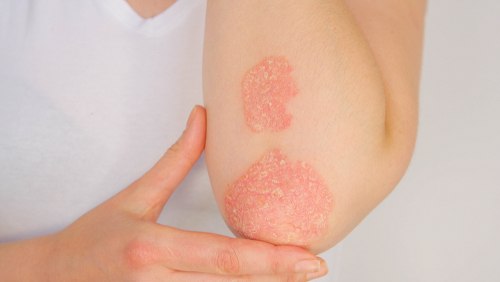Psoriasis, a common inflammatory skin condition characterized by silvery-white scales on plaques and erythematous papules, has been studied for its possible links to various etiological factors, including infections like Helicobacter pylori (H. pylori). Recent research aimed to assess the prevalence of H. pylori infection in patients with psoriasis versus healthy controls and explore any correlation between the severity of psoriasis and H. pylori infection. This cross-sectional study utilized the H. pylori stool antigen-enzyme linked immunosorbent assay to measure H. pylori antigen in both psoriatic patients and control groups.
The researchers found a statistically significant higher prevalence of H. pylori infection in patients with psoriasis (45.33%) compared with controls (30.66%), with a p-value of 0.046. Despite the higher infection rates in psoriatic patients, there was no significant correlation found between H. pylori infection and the severity of psoriasis, measured by the Psoriasis Area Severity Index, or other factors such as age or duration of the illness. This suggests that while H. pylori infection is more common among those with psoriasis, it does not influence the severity or progression of the disease.
Reference: Abdel-Hamid S, Abdel-Monem SA. Helicobacter pylori infection in psoriatic patients and its relation to psoriasis severity: Cross Sectional Study. Skin Res Technol. 2024;30(8):e70005. doi: 10.1111/srt.70005.








